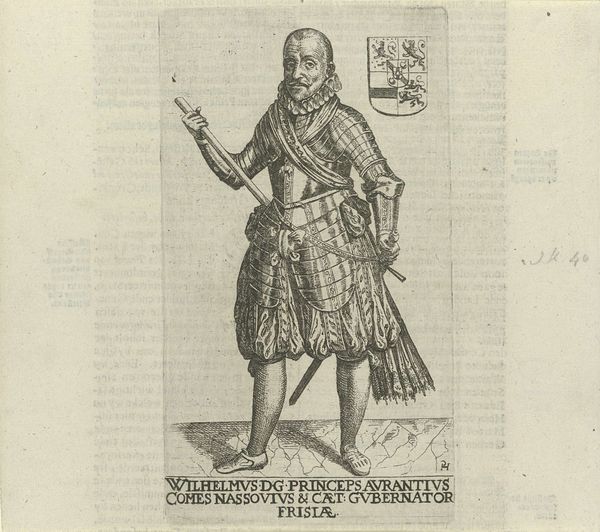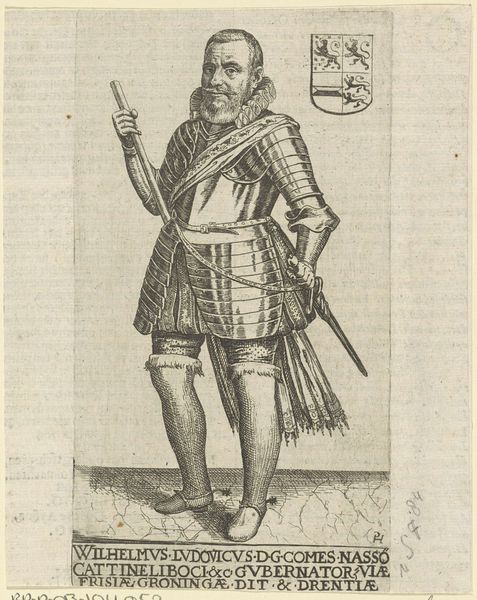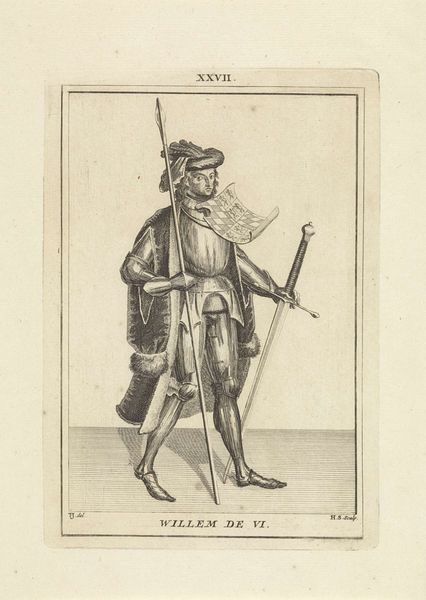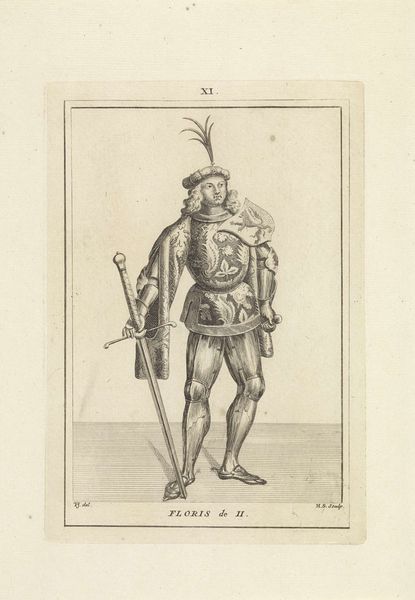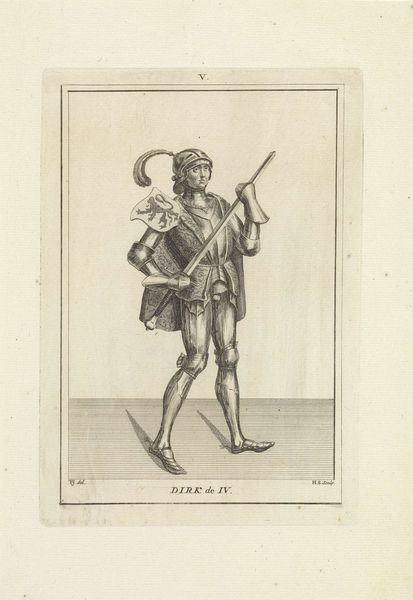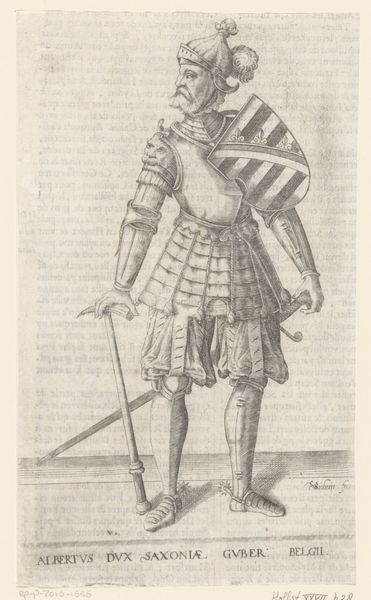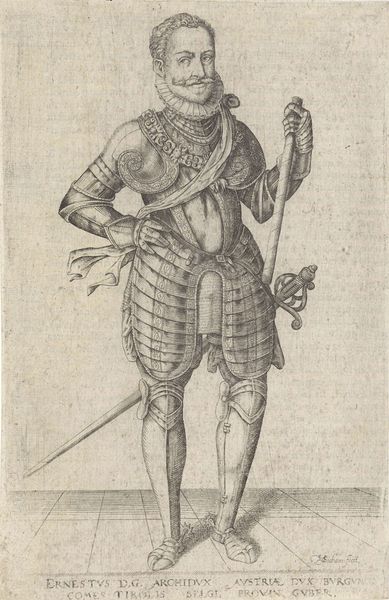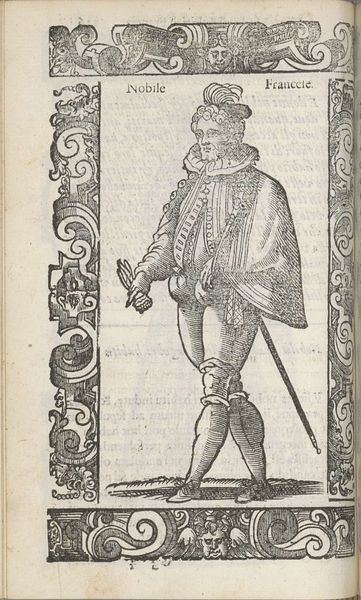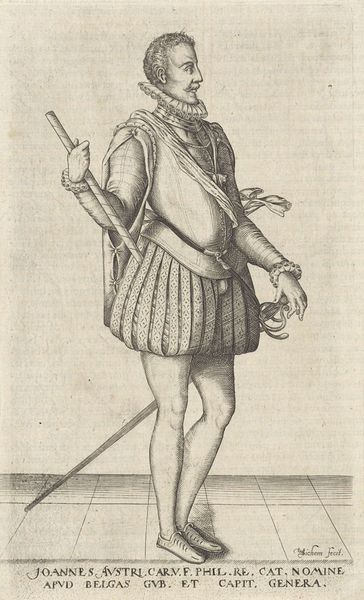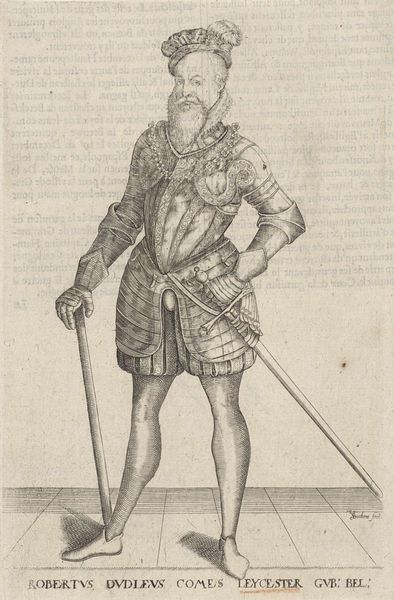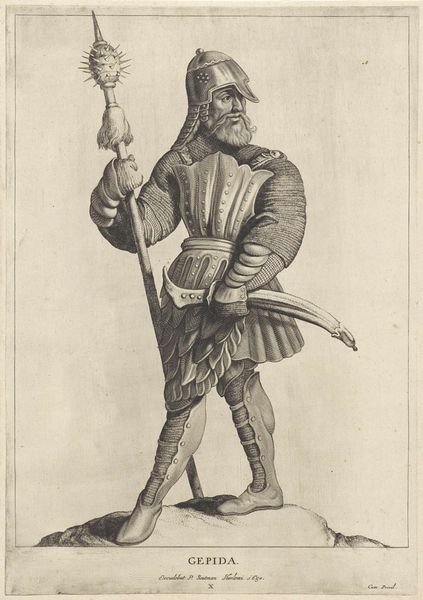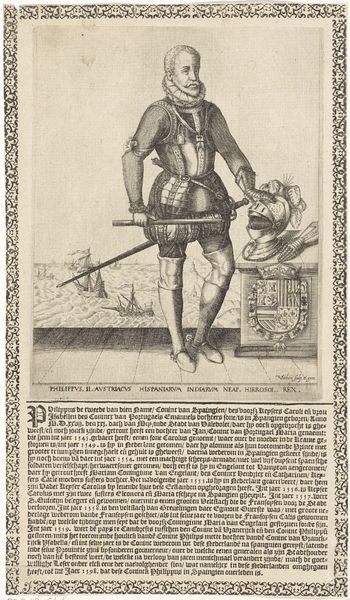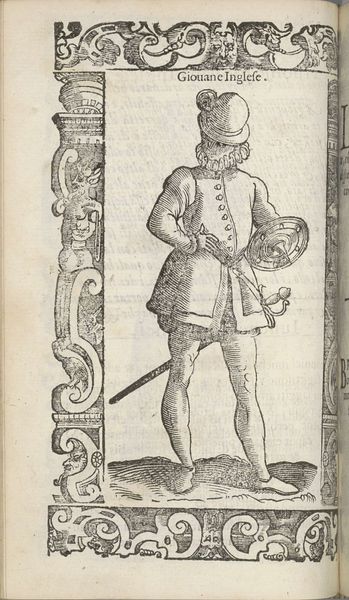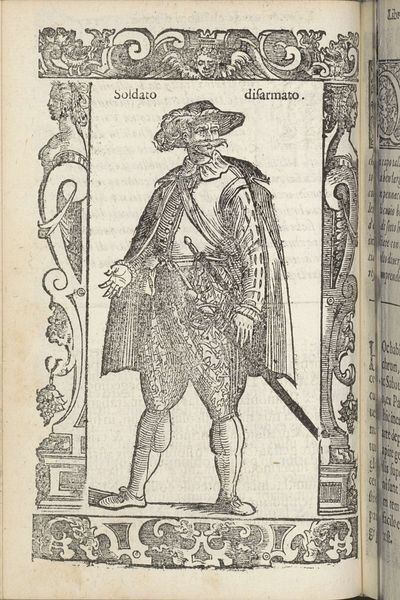
#
light pencil work
#
quirky sketch
#
pencil sketch
#
sketch book
#
personal sketchbook
#
idea generation sketch
#
sketchwork
#
pen-ink sketch
#
sketchbook drawing
#
sketchbook art
Dimensions: height 161 mm, width 142 mm
Copyright: Rijks Museum: Open Domain
Curator: Good morning. Today, we're looking at a remarkable print held here at the Rijksmuseum: Pieter Feddes van Harlingen's 1622 "Portret van Ernst Casimir, graaf van Nassau-Dietz." It offers a fascinating glimpse into the visual culture surrounding Dutch aristocracy in the early 17th century. Editor: Well, my first thought? That’s a whole lotta metal! He looks positively encased, like an armadillo crossed with a dignitary. A bit…intense, perhaps? Curator: Indeed. Such portraiture served specific purposes. Ernst Casimir was a significant military figure, governor of Friesland. The armor emphasizes his power, status, and readiness to defend the realm. Editor: Right, it’s pure theatre, isn't it? Makes you wonder how comfortable he actually was in that get-up, all puffed up like a startled pigeon. And that little lace collar…such a contrast! Curator: Absolutely, the attire projects authority but it is worth examining in context: printed portraits disseminated ideals. Prints like these served political and social functions; consider who this was for, not only who it was of. Editor: Okay, okay, so it’s propaganda…but beautifully rendered propaganda, wouldn't you say? Look at the detail in the metal, that's light bouncing off it so deftly. And there’s a sensitive sketchiness too – the face has character. Curator: Agreed. Van Harlingen’s skill as a printmaker is undeniable. And remember, this was a time when printed images were vital for spreading information and building reputations. Portraits became powerful political tools. The heraldry above his shoulder confirms his lineage, reinforcing legitimacy and legacy. Editor: Makes you think about how we “curate” our own image now, online. Different armour, different battles, same game perhaps? Curator: A compelling point! While societal mechanics may echo across time, each generation reinvents them to fit their unique socio-political circumstances. We still use imagery strategically, crafting public personas—digital armor for the modern age, as you put it. Editor: Exactly. Ernst Casimir: a seventeenth-century influencer, perhaps? Food for thought! Curator: Indeed. It's always rewarding to see history resonating across the centuries and inviting us to consider our present with fresh eyes.
Comments
No comments
Be the first to comment and join the conversation on the ultimate creative platform.
